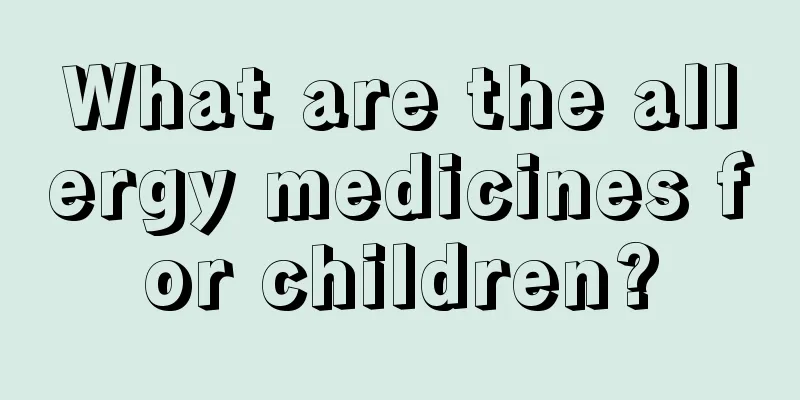Seven-month-old baby sweats a lot on his head when sleeping

|
Children are in a period of rapid growth and development, and their sweat glands are relatively developed. Therefore, children are prone to sweating. When they sleep, they will sweat a lot on their heads and faces. Generally speaking, this is normal and does not require special attention. However, if they sweat throughout their sleep and the amount of sweat is relatively large, it is not normal. There are many factors that can cause this situation. Let us now understand the reasons why children sweat a lot on their heads when they sleep. Some children often sweat while sleeping, and the sweat soaks their clothes and pillowcases. This phenomenon is called night sweats in traditional Chinese medicine. Many parents are worried about this and seek medical treatment everywhere, but to little effect.In fact, night sweats in children are not necessarily pathological. Most of them are physiological. Because children's skin contains more moisture, has abundant capillaries, has an active metabolism, and their autonomic nervous system regulation function is not yet fully developed, they are prone to sweating when they are active. If children are too active before going to bed, it can increase the body's heat production, or shortly after eating, gastrointestinal motility increases, gastric juice secretion increases, and sweat gland secretion also increases accordingly. These can cause children to sweat more after sleeping, especially within 2 hours after sweating. There are many reasons why children sweat excessively when sleeping, both physiological and pathological.Physiological hyperhidrosis is caused by hot weather, high room temperature, excessive clothing or too thick quilts. Some parents like to feed their children a bottle of milk before going to bed. After feeding, the child falls asleep quietly. However, this is the stage of heat production after feeding, so the child often sweats profusely. This type of sweating is caused by the body's regulation of body temperature. Sweating often occurs more when just falling asleep and then gradually decreases. Because children have an active metabolism, high skin water content, more microvessels, and immature autonomic nerves, they sweat a lot, which is completely normal. Pathological hyperhidrosis occurs when a person sweats a lot during the entire sleep process. Children with rickets begin to sweat profusely after falling asleep, especially on the head, which can soak the pillow or pillowcase, and are accompanied by baldness on the pillow and crying. Children with active tuberculosis not only sweat in the first half of the night, but also often sweat in the second half of the night and before dawn, which is called night sweats. At the same time, children may have symptoms such as low fever, cough, weight loss, weakness, and flushed face. Therefore, if a healthy and active child sweats a lot while sleeping, it may be a normal phenomenon and parents do not need to worry too much.
Children sweating during sleep is a problem that almost every parent will encounter. Some parents are worried about this. The first thing they think of is whether their children are calcium deficient? Is their child physically weak? In fact, sweating is a normal physiological phenomenon of the human body. Sweat can take away excess heat and some metabolic products such as uric acid and fatty acids in the body. Because children grow and develop rapidly, their metabolism is more vigorous than that of adults, and they generate relatively more heat and metabolic products. At the same time, children's autonomic nervous system is not fully developed. When they fall asleep, the sympathetic nerves in charge of sweat glands will lose their function. It is completely normal that you may sweat a lot due to temporary excitement caused by the control of the brain. As long as the child has no other symptoms, such as irritability, crying, easy waking, etc., there is no need to worry about him. This type of sweating often occurs within half an hour after falling asleep, and is mainly on the forehead. It usually stops slowly within 2 hours after falling asleep. It is more common in children aged 3 to 7 years old and gradually disappears with age. Some people call it physiological hyperhidrosis. However, if the child is usually weak and sweats profusely when falling asleep at night, as if he is being drenched in water, or even sweats all night long, wetting the pillow and clothes, and is accompanied by symptoms such as irritability, crying, and weight loss, then it is pathological hyperhidrosis. A common cause is vitamin D deficiency rickets. In addition to excessive sweating at night, there are also symptoms such as irritability, restless sleep, easy awakening, square head, baldness, and pigeon chest. If you have the above symptoms, you can supplement vitamin D and calcium in appropriate amounts under the guidance of a doctor. When eating, you should also pay attention to eating more foods rich in calcium, such as fish, shrimp skin, etc. Through active treatment, excessive sweating can be cured. To care for children with excessive sweating, you should pay attention to changing clothes and bedding frequently, and wipe the body with a soft cloth at any time, or apply powder externally to keep the skin dry. When you are sweating, you should avoid being blown directly by the wind to avoid catching a cold. Excessive sweating can easily cause loss of yin fluid and damage to yang energy, so children should be given more water to drink and their diet should avoid spicy, dispersing and attacking foods to prevent damage to the vital energy and more sweating. |
<<: What should I do if my baby sweats a lot at night?
>>: Symptoms of mango allergy in children
Recommend
How to make broccoli baby food
Broccoli ranks first among vegetables, which mean...
My baby's buttocks are red, what should I do?
We all know that newborn babies have relatively p...
What to do if you are not tall enough?
Everyone hopes that their height can reach a high...
Is it a cause for concern if the baby is breathing heavily?
Nowadays, babies are just born and expectant moth...
What to do if infants and young children have red and swollen throats
Newborns have very low immunity and their organs ...
Children's rice pattern
Parents who have taken care of children should kn...
What happens when a child eats chewing gum?
It is not uncommon for children to eat chewing gu...
Why is my baby so irritable?
In life, we often see parents get angry and cry l...
Children cough at night
A child’s body and beauty are very fragile. Many ...
What causes itchy eyes in children?
Some children have allergic constitutions and are...
How to improve children's immunity
Many children are always sick, which makes their ...
What are the types of meconium in newborns?
After the baby is born, parents should start payi...
What to do if your child has indigestion
Food accumulation means that children consume too...
How many heart beats per minute for a primary school student
In daily life, the heart rate of children is usua...
What is the correct method for children's vision correction?
Many people believe that children's eyesight ...









